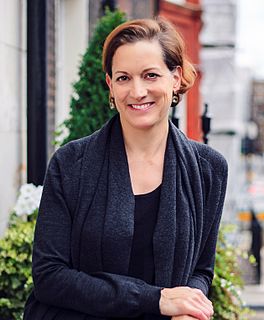 W
WAnne Elizabeth Applebaum is an American journalist and historian. She has written extensively about Marxism–Leninism and the development of civil society in Central and Eastern Europe.
 W
WHannah Arendt was a political philosopher, author, and Holocaust survivor. Arendt is one of the most important political thinkers of the 20th century. Her contributions continue to influence on political theorists today.
 W
WJörg Baberowski is a German historian and Professor of Eastern European History at the Humboldt University of Berlin. He studies the history of the Soviet Union and Stalinist violence. Baberowski earlier served as Director of the Historical Institute and Dean of the Faculty of Philosophy I at the Humboldt University in Berlin.
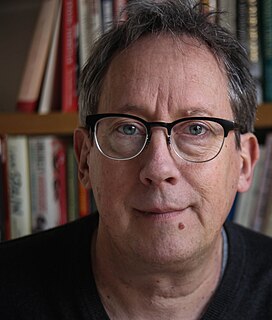 W
WRichard Baxell is a British historian and the author of three books on the Spanish Civil War. Between 2015 and 2018 he was the Chair of the International Brigade Memorial Trust. He received his Doctor of Philosophy from the London School of Economics in 2002 with a thesis titled The British Battalion of the International Brigades in the Spanish Civil War, 1936–1939. As of 2020 he is a research fellow at the London School of Economics.
 W
WJean-Jacques Becker is a French historian,. He is a specialist of contemporary history.
 W
WGrzegorz Michał Braun is a Polish far-right politician, journalist, academic lecturer, movie director and screenwriter. He is the leader of the Confederation of the Polish Crown and one of the leaders of Confederation Liberty and Independence. He was elected to the Sejm in 2019.
 W
WPierre Broué was a French historian and Trotskyist revolutionary militant whose work covers the history of the Bolshevik Party, the Spanish Revolution and biographies of Leon Trotsky.
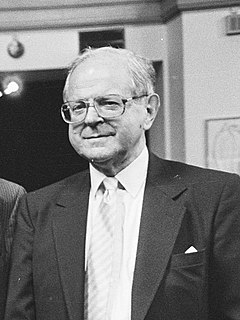 W
WGeorge Robert Acworth Conquest was a British historian and poet. He is best known for his laws of politics.
 W
WStéphane Courtois is a French historian and university professor, a Director of research at the French National Centre for Scientific Research (CNRS), Professor at the Catholic Institute of Higher Studies (ICES) in La Roche-sur-Yon, and Director of a collection specialized in the history of communist movements and regimes.
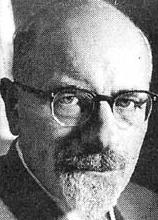 W
WIsaac Deutscher was a Polish Marxist writer, journalist and political activist who moved to the United Kingdom before the outbreak of World War II. He is best known as a biographer of Leon Trotsky and Joseph Stalin and as a commentator on Soviet affairs. His three-volume biography of Trotsky was highly influential among the British New Left in the 1960s and 1970s.
 W
WWillem Drees Sr. was a Dutch politician of the defunct Social Democratic Workers' Party (SDAP) and later co-founder of the Labour Party (PvdA) and historian who served as Prime Minister of the Netherlands from 7 August 1948 to 22 December 1958.
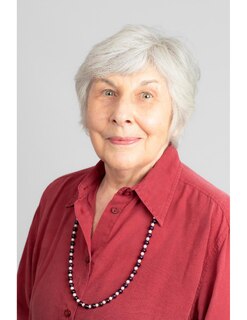 W
WSheila Fitzpatrick is an Australian historian, whose main subjects are history of the Soviet Union and history of modern Russia, especially the Stalin era and the Great Purges, of which she proposes a "history from below", and is part of the "revisionist school" of Communist historiography. She has also critically reviewed the concept of totalitarianism and highlighted the differences between Nazi Germany and the Soviet Union in debates about comparison of Nazism and Stalinism.
 W
WEfim Naumovich Gorodetsky was a Soviet historian and a leading authority on the historiography of the October Revolution and the formation of the Soviet state. He received his advanced education at Moscow State University (MSU) where he also taught. He was awarded the State Prize of the USSR in 1943 for his part in a history of the Russian Civil War and produced and edited a number of collections of primary sources relating to Russian and Soviet history.
 W
WDaniel Guérin was a French anarcho-communist author, best known for his work Anarchism: From Theory to Practice, as well as his collection No Gods No Masters: An Anthology of Anarchism in which he collected writings on the idea and movement it inspired, from the first writings of Max Stirner in the mid-19th century through the first half of the 20th century. He is also known for his opposition to Nazism, fascism, capitalism, imperialism and colonialism, in addition to his support for the Confederación Nacional del Trabajo (CNT) during the Spanish Civil War. His revolutionary defense of free love and homosexuality influenced the development of queer anarchism.
 W
WGerald Horne is an American historian who currently holds the John J. and Rebecca Moores Chair of History and African American Studies at the University of Houston.
 W
WIrving Howe was an American literary and social critic and a prominent figure of the Democratic Socialists of America.
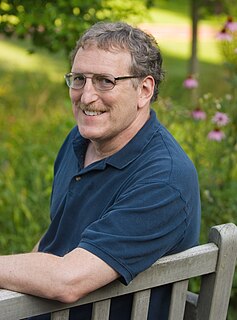 W
WMaurice Isserman, formerly William R. Kenan and the James L. Ferguson chairs, is a long-time Professor of History at Hamilton College and important contributor to the "new history of American communism" that reinterpreted the role of the Communist Party USA during the Popular Front period of the 1930s and 1940s. His books have also traced the emergence of the New Left and the 1960s. He co-authored a biography of Dorothy Ray Healey and wrote an award-winning biography of the American socialist leader Michael Harrington. Recently, he refocused his work on the history of mountaineering in the Himalayas and the United States. He has contributed editorials and book reviews to The New York Times, The Boston Globe, Newsday, the Los Angeles Times, The Nation, and The American Alpine Review.
 W
WOleg Vitalyevich Khlevniuk is a historian and a senior researcher at the State Archive of the Russian Federation in Moscow. Much of his writing on Stalinist Soviet Union is based on newly released archival documents, including personal correspondence, drafts of Central Committee paperwork, new memoirs, and interviews with former functionaries and the families of Politburo members. Gleb Pavlovsky has characterized him as a "leading Russian historian of Stalinism." He also a corresponding fellow of Royal Historical Society.
 W
WGerd Koenen is a German historian and former communist politician.
 W
WLeszek Kołakowski was a Polish philosopher and historian of ideas. He is best known for his critical analyses of Marxist thought, especially his three-volume history, Main Currents of Marxism (1976). In his later work, Kolakowski increasingly focused on religious questions. In his 1986 Jefferson Lecture, he asserted that "[w]e learn history not in order to know how to behave or how to succeed, but to know who we are".
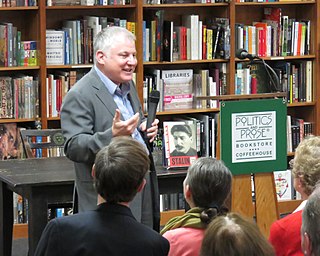 W
WStephen Mark Kotkin is an American historian, academic and author. He is currently the John P. Birkelund '52 Professor in History and International Affairs at Princeton University, where he is also co-director of the program in history and the practice of diplomacy and the director of the Princeton Institute for International and Regional Studies. He is also a senior fellow at the Hoover Institution at Stanford University. He has won a number of awards and fellowships, including the Guggenheim Fellowship, the American Council of Learned Societies and the National Endowment for the Humanities Fellowship.
 W
WDaniel Joseph Leab was an American historian of 20th-century history, particularly American labor unions. He was long-time editor of three journals and magazines.
 W
WWolfgang Leonhard was a German political author and historian of the Soviet Union, the German Democratic Republic and Communism. A German Communist whose family had fled Hitler's Germany and who was educated in the Soviet Union, after World War II Leonhard became one of the founders and leaders of the German Democratic Republic until he became disillusioned and fled in 1949, first defecting to Yugoslavia and then moving to West Germany in 1950 and later to the United Kingdom. In 1956 he moved to the United States, where he was a popular and influential professor at Yale University from 1966 to 1987, teaching the history of communism and the Soviet Union, topics about which he wrote several books. After the Cold War ended, he returned to Germany.
 W
WMoshe "Misha" Lewin, was a scholar of Russian and Soviet history. He was a major figure in the school of Soviet studies which emerged in the 1960s.
 W
WDomenico Losurdo was an Italian Marxist philosopher and historian. A controversial figure, praised by many for his criticism of liberalism in practice and most of his philosophical works, and criticized by others mainly for his work about Joseph Stalin for relativising him and for his attempt at historical revisionism on the experience of Communist states such as the Soviet Union, Losurdo was best known for his critique of anti-communism, colonialism, imperialism, the European tradition of liberalism, and the concept of totalitarianism. In addition to his works on philosophers such as Antonio Gramsci, G. W. F. Hegel, Martin Heidegger, Immanuel Kant, György Lukács, Karl Marx, Friedrich Nietzsche, Losurdo proposed the concept of communist autophobia and articulated a distinction between political-moral and naturalistic despecification.
 W
WErnest Ezra Mandel (Dutch: [manˈdɛl]; also known by various pseudonyms such as Ernest Germain, Pierre Gousset, Henri Vallin, Walter;, was a Belgian Marxian economist, Trotskyist activist and theorist, and Holocaust survivor. He fought in the underground resistance against the Nazis during the occupation of Belgium.
 W
WSergei Petrovich Melgunov was a Russian historian, publicist and politician best known for his opposition to the Soviet government and his numerous works on the Russian Revolution of 1917 and the Russian Civil War.
 W
WIsaak Izrailevich Mints (1896-1991) was the leading Soviet historian in the early and mid-twentieth century. In 1949 he lost most of his academic positions following a campaign against him by his colleague Arkadiĭ Sidorov that was part of the drive by Joseph Stalin to eliminate the "rootless cosmopolitans", most of whom were Jewish.
 W
WJames J. "Jim" Oneal, a founding member of the Socialist Party of America (SPA), was a prominent socialist journalist, historian, and party activist who played a decisive role in the bitter party splits of 1919–21 and 1934–36.
 W
WBrian Leonard Pearce was a British Marxist political activist, historian, and translator. Adept and prolific in Russian-to-English translation, Pearce was regarded at the time of his death as "one of the most acute scholars of Russian history and British communism never to have held an academic post."
 W
WRichard Edgar Pipes was an American academic who specialized in Russian and Soviet history. He published several books critical of communist regimes throughout his career. In 1976, he headed Team B, a team of analysts organized by the Central Intelligence Agency who analyzed the strategic capacities and goals of the Soviet military and political leadership. Pipes was the father of American historian Daniel Pipes.
 W
WBoris Nikolayevich Ponomarev was a Soviet politician, ideologist, historian and member of the Secretariat of the Communist Party of the Soviet Union. His patron in his rise to the Politburo was Mikhail Suslov.
 W
WAlec (Alirza) Rasizade is a retired Azerbaijani-American professor of history and political science, who specialized in Sovietology, primarily known for the typological model, which describes the impact of a drop in oil revenues on the process of decline in rentier states by stages and cycles of their general socio-economic degradation upon the end of an oil boom. He has also authored more than 200 studies on the history of international relations, Perestroika reforms and breakup of the USSR, oil diplomacy and contemporary politics in the post-Soviet states and autonomies of Russia, Central Asia and the Caucasus.
 W
WDavid Renton is a British barrister, historian and author. Despite his aristocratic upbringing, he has been associated with the British hard-left, and was a long-term member of the Socialist Workers Party (SWP). He has written a number of books on fascism and the politics of the left.
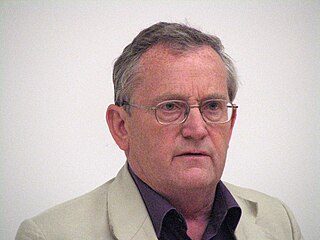 W
WRobert John Service is a British historian, academic, and author who has written extensively on the history of the Soviet Union, particularly the era from the October Revolution to Stalin's death. He was until 2013 a professor of Russian history at the University of Oxford, a Fellow of St Antony's College, Oxford, and a senior Fellow at Stanford University's Hoover Institution. He is best known for his biographies of Vladimir Lenin, Joseph Stalin and Leon Trotsky. He has been a fellow of the British Academy since 1998.
 W
WArkady Lavrovich Sidorov was a Russian Soviet historian. A member of the Communist Party from an early age, he was educated as a political activist and did party work before serving in the Second World War during which he was wounded. He started an academic career in Moscow and received his doctorate from Moscow State University (MSU) where he also taught before joining the Institute of History of the Academy of Sciences of the USSR of which he became director.
 W
WBoris Souvarine, also known as Varine, was a French Marxist, communist activist, essayist and journalist.
 W
WLev Davidovich Bronstein, better known as Leon Trotsky, was a Ukrainian-Russian Marxist revolutionary, political theorist and politician. Ideologically a communist, he developed a variant of Marxism which has become known as Trotskyism.
 W
WGiles William Udy is an English writer and historian of the Soviet Gulag system. He is a member of the council of the Keston Institute and holds an MBA from the Cass Business School. He is a regular contributor to The Times, The Daily Telegraph, the Daily Mail, the i, UnHerd and the magazine Standpoint.
 W
WTomás Várnagy is an Argentine social scientist and philosopher, professor at the University of Buenos Aires (UBA).
 W
WNicolas Werth is a French historian.
 W
WBertram David "Bert" Wolfe was an American scholar and former communist best known for biographical studies of Vladimir Lenin, Joseph Stalin, Leon Trotsky, and Diego Rivera.
 W
WHoward Zinn was an American historian, playwright, philosopher, socialist thinker and World War II veteran. He was chair of the history and social sciences department at Spelman College, and a political science professor at Boston University. Zinn wrote over 20 books, including his best-selling and influential A People's History of the United States in 1980. In 2007, he published a version of it for younger readers, A Young People's History of the United States.